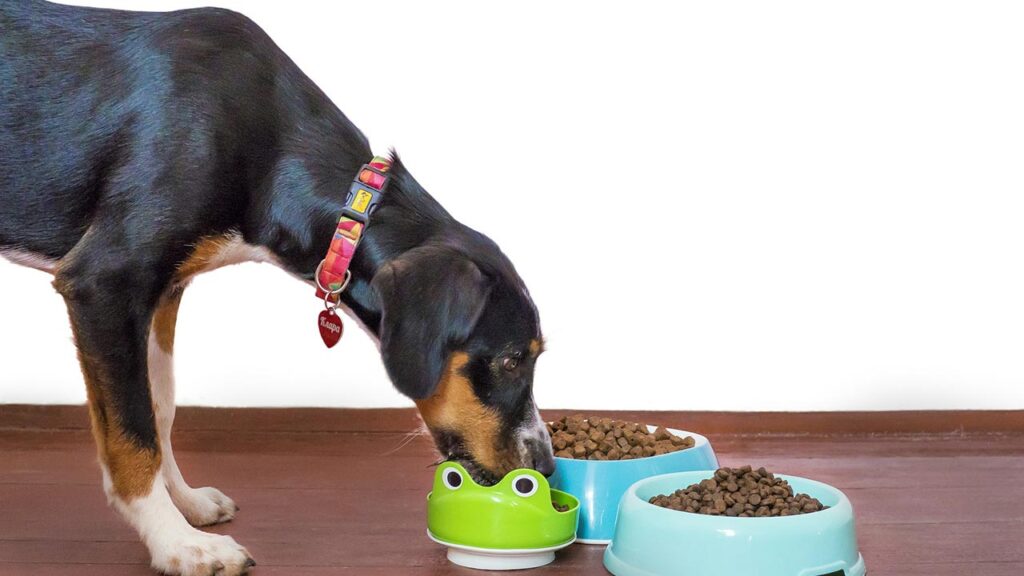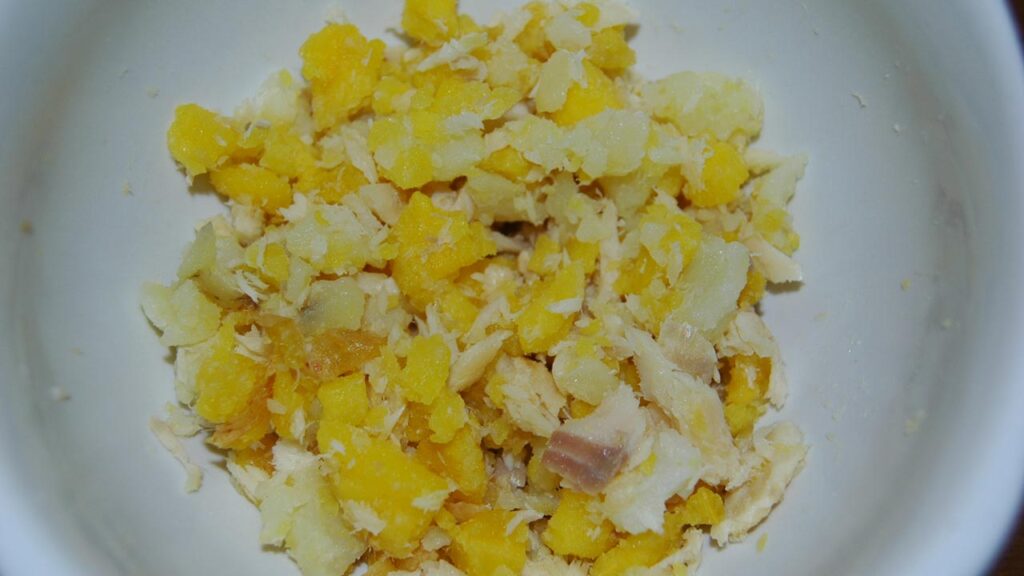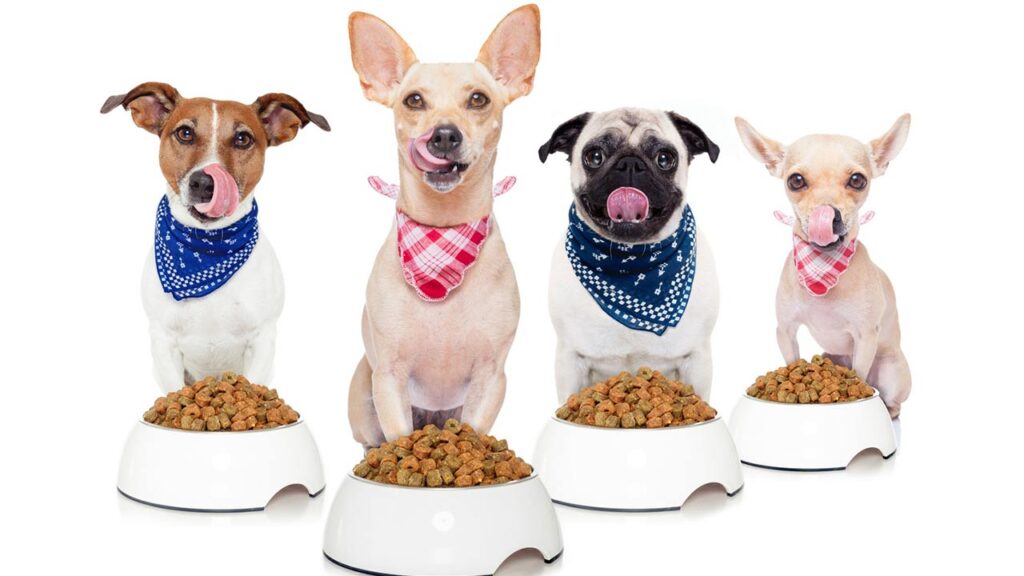It’s not uncommon for senior dogs to experience dental issues, making it challenging to consume their daily dry food. Because of the importance of proper feeding to the senior dog’s overall health and well-being, pet owners may find themselves in a difficult position due to this circumstance. Fortunately, there is a solution: soft dry dog food for dogs with bad teeth.
In this article, we’ll explore the benefits of soft dry dog food for senior dogs with bad teeth, provide tips for selecting the best food, and recommend some high-quality options.
Importance of Good Nutrition for Senior Dogs

Since senior dogs are more prone to developing health problems as they age, they need a proper diet. A healthy weight, a robust immune system, and optimal organ function are all benefits that can be achieved and maintained with proper nutrition.
Nevertheless, conventional dry kibble might be difficult for older dogs because of oral issues such as gum disease and tooth loss.
Challenges of Feeding Senior Dogs with Dental Issues
Feeding older dogs, especially those with dental issues, can be difficult. They may experience discomfort when chewing, which makes it difficult for them to consume food.
In addition, if they are unable to eat appropriately, it is possible that they are not receiving the necessary essential nutrients. This can result in a variety of health issues, including malnutrition and a weaker immune system, amongst other issues.
Benefits of Soft Dry Dog Food for Senior Dogs with Bad Teeth

When it comes to an elderly dog or a dog with bad teeth, soft dry dog food, also known as soft kibble, is an excellent choice. Because of the food’s more tender consistency, it is simpler for dogs to chew and digest than other varieties.
Dogs with problems swallowing or are prone to choking may benefit from eating soft kibble dog food. This type of food is easier for dogs to chew and swallow.
Certain soft kibble dog food varieties have been developed specifically for dogs with unhealthy dog teeth. These foods contain the required nutrients to maintain the dog’s health and oral hygiene.
Advice for Choosing the Best Soft Dry Dog Food for Dogs with Bad Teeth
It is essential to consider several considerations before purchasing a senior dog’s soft dry dog food because their teeth are in poor condition. Keep an eye out for brands that have been developed, especially for senior dogs that are experiencing dental concerns.
These foods should be easy to chew and digest while providing the nutrients for optimal health. Think over the components, and pick a manufacturer that relies primarily on high-quality proteins and uses very few fillers.
Additionally, it’s important to consult with your veterinarian to determine the best food for your dog’s needs.
Recommendations for High-Quality Soft Dry Dog Food Options
One of the high-quality options for soft dry dog food for senior dogs with bad teeth is Yumwoof Perfect Kibble. This particular kind has a texture designed to be gentle on a dog’s teeth and gums, making it less difficult for the animal to chew and digest the food.
These best dog food for bad teeth does not contain any artificial preservatives, fillers, or by-products of any kind, and the ingredients are very high grade. Other great options include Hill’s Science Diet Adult 7+ Small Bites and Blue Buffalo Life Protection Senior.
Homemade soft dog food options for senior dogs with bad teeth

If you are searching for an alternative to the commercially available soft dry dog food options, the following are some homemade recipes for soft dog food that can be beneficial for older dogs or dogs with dental problems:
- Cooked ground meat: Cooked ground meat, such as beef or chicken, can be a good source of protein for your senior dog if it has been properly cooked. Before serving, you should ensure that any bones and extra fat have been removed.
- Soft vegetables: Your dog’s diet could benefit from adding cooked and mashed vegetables such as sweet potatoes, carrots, and green beans. These vegetables provide additional nutrients and fiber.
- Low-sodium broth: If you want to help soften your dog’s food and make it easier for them to chew, you may add broth low in sodium to their diet.
- Softened kibble: You can also try to soften your dog’s usual kibble with very little warm water or low-sodium broth.
Before modifying your dog’s diet, including introducing homemade food options, discussing the matter with your dog’s regular veterinarian is essential.
How to transition your dog to a soft dry dog food
Transitioning your dog to a new food can be challenging, but it’s important to do it gradually to avoid digestive upset. Here are some tips on how to transition your dog to soft dry dog food:
- Mix a small amount of the new food with your dog’s food.
- Gradually increase the amount of new food over a week or two.
- Pay attention to your dog’s digestion during the transition period, and adjust the amount of new food accordingly.
- If your dog experiences any digestive upset, slow the transition or consult your veterinarian for advice.
- Once your dog has fully transitioned to the new soft dry dog food, monitor their dental health and overall well-being to ensure the new food works well for them.
Final Thoughts
The feeding of senior dogs that have dental issues might be difficult, but soft dry dog food can be an excellent solution for this issue.
It is crucial for senior dogs to have good nutrition, and feeding them soft kibble can help ensure they get all the required nutrients to maintain their health and happiness.
Also, you should consider the contents, the texture, and the specific requirements of your dog when choosing soft dry dog food, the best food for dogs with bad teeth. You can assist in ensuring that your four-legged pal receives the finest possible nourishment by selecting a brand of excellent quality and talking with your veterinarian.


